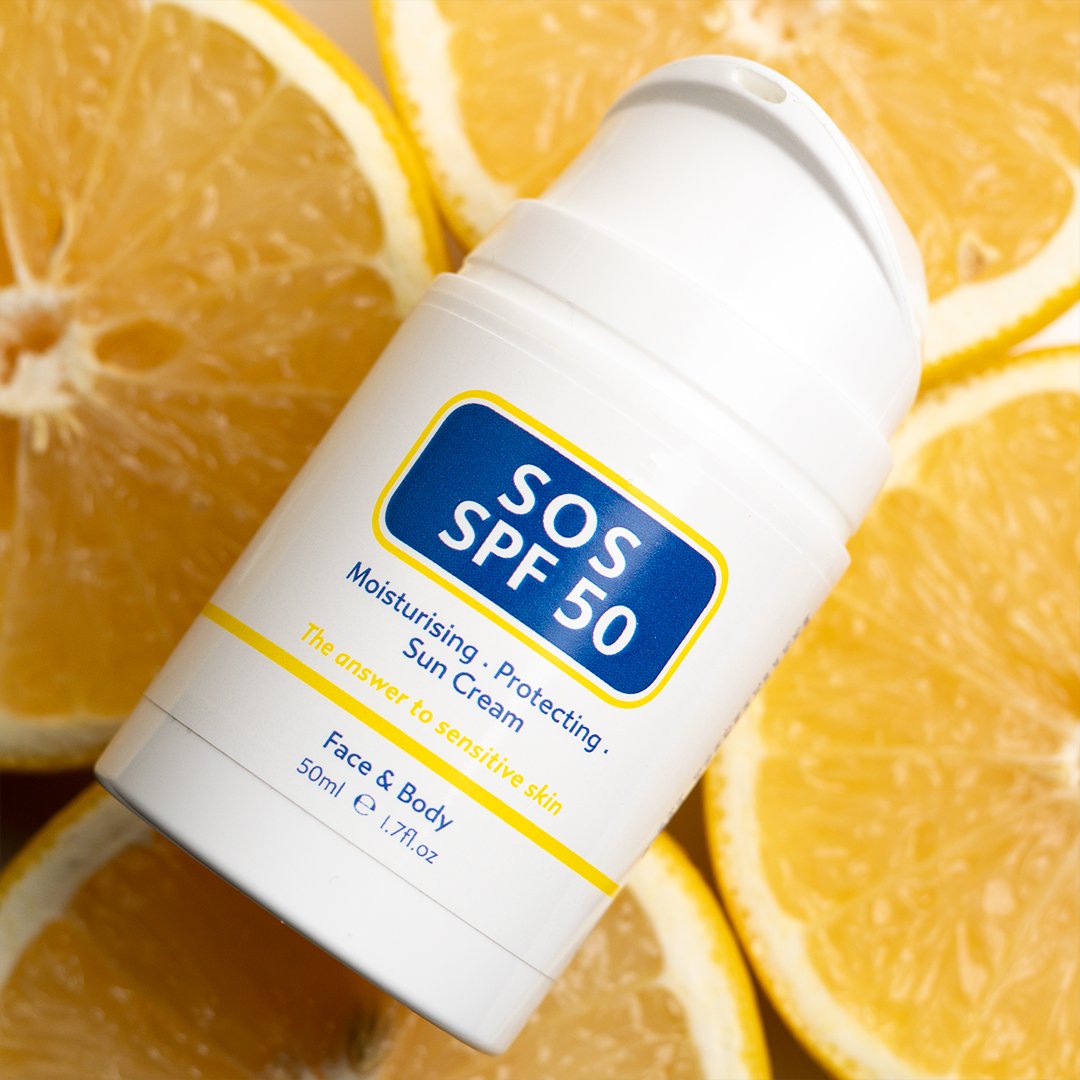Are you suffering from dry skin this winter?
Chartered Chemist, Chartered Scientist & our founder Bruce Green comments “The main reason for drier skin this time of year, for people who do not usually suffer with it, is the change in humidity as cold air cannot carry as much moisture as warm air. Cold environments can be drying to skin, but adding in the use of more heat, and your skin will become drier and scalier. Hot Showers and baths are tempting this time of year when it's cold around us. Hot showers can expose the skin's natural barrier, leaving it more vulnerable to skin irritation, heat rashes and drier skin post shower. It's important to add moisture back into the skin after any extreme cold or heat exposure. I recommend SOS Serum, for a soothing, sensitive skin moisturiser which will help reduce redness and skin inflammation.
Despite putting on radiators, electric blankets or fan heaters in your house, because the air is more dry, you're not adding moisture to the environment which is needed to keep skin balanced and to prevent further drying out. Instead, add a humidifier or even place bowls of water near your radiator or window to release moisture back into the air. This is especially worthwhile during the night time when you're asleep for 6-8 hours and your room is likely at its hottest from the heating being on for some time before you go to sleep. Applying a night cream such as SOS Night, can help moisture boost the skin overnight to further prevent skin drying.
Our diets are less moisture-rich in the winter - in the summer we crave hydration and tend to eat more fruit and may even drink more water to compensate for water-loss. When we think of winter diets, there's drier, richer foods such as roast dinners, pies and due to festivities, you may consume more alcohol. All of these elements in our diet can contribute to drier skin.
Wearing long-sleeves and layers in winter, between activewear and knitted items, creates a moisture retention barrier and therefore can be drying to the skin. The way to prevent chafing is to decrease the amount of friction to your skin. Keep dry – don’t stay in wet or sweaty clothes. Think about surface lubricity – starch or body talc on contact areas can help. Petroleum jelly or other types of lubricants, all available over the counter, are also a possibility however see what works for you.
When exercising, wear proper fitting, moisture wicking clothes; less is always more. The answer – look at compression clothing options worn by professional cyclists.
One of the most important skincare rules is SPF, and wintertime is no different. Often, there are many days of blue skies and despite the cold, UV rays are still active, and necessary to wear not only to protect the skin from premature ageing, but to keep skin hydrated throughout the day. I recommend SOS SPF 50, which has zinc oxide, vitamin E and Soy Bean stem cells."



